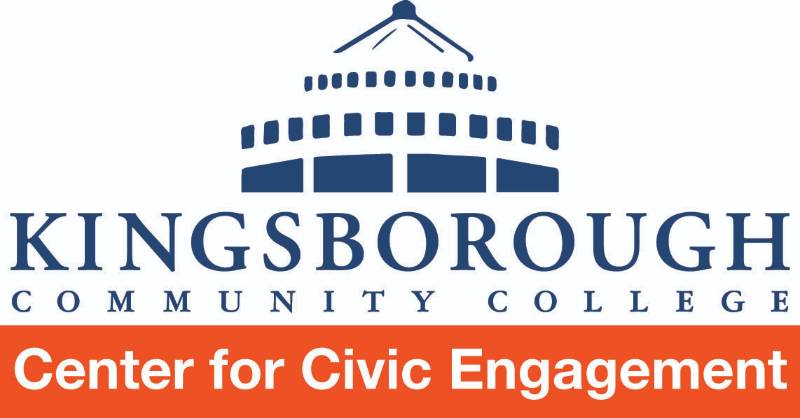Civic Engagement at Kingsborough Community College

- Kingsborough Center for Civic Learning & Democratic Engagement
-
U-217 A
- kcccenter.civicengagement@kbcc.cuny.edu
-
Faculty Director: Professor Jason Michael Leggett, Behavioral Sciences Department: Criminal Justice Program
-
Faculty Co-Director: Dr. Joanna Maulbeck, Behavioral Sciences Department: Education Program
Mission Statement
The Kingsborough Center for Civic Engagement promotes democracy by critically examining, describing, and invigorating its institutions, practices, and multicultural roots. The Center’s work is centered around the following foundational elements: democratic thinking, intercultural dialogue, advocacy through laws and institutions, and equitable social and economic conditions.
The Center’s work includes: social interdisciplinary research, culturally restoring & sustaining teaching and learning, public facing programs, non-partisan and bi-partisan partnerships, and political engagement through voting and local, pragmatic coalition building.
The Center collaborates with other centers at Kingsborough that also work to advance equitable democracy.
Library, Collaborative Working Space, and Special Collections Archive
The Center for Civic Engagement is proud to host an archive that documents the history and development of civic learning and democratic engagement at Kingsborough. We also welcome you to conduct research on civic learning and democratic engagement in our space. We are equipped with a number of books, periodicals, resource guides, and curricular examples, and plenty of workspace. Interested faculty and staff should email us if interested. We also host a number of events and meetings throughout the year. Come join us!
Background
Institutions of higher education have increasingly come to understand their crucial role of educating students to be actively engaged in their communities and the body politic. Having students come to an understanding of their individual roles as members of a democratic society is essential both as a form of active learning with its pedagogical benefits and as fulfilling an obligation to the community to use education to create an engaged citizenry. As part of this trend toward increasing civic engagement among students, many schools have made it a graduation requirement or woven it into the fabric of curricular design. Kingsborough Community College has a long legacy of commitment to the community. It is in this spirit and in view of the benefit to our students that the civic engagement graduation requirement was pursued and eventually adopted.
Defining Civic Engagement at Kingsborough Community College
Kingsborough accepts as a fundamental principle that education requires social awareness, an acceptance of social responsibility and active participation in meeting the challenges of a modern society. Through civic engagement, we recognize our mutual responsibility to care for each other in the college, in our communities, and on our planet. This responsibility may be accomplished through political activity, community service, engagement in leadership roles, advocacy or becoming informed about issues that relate to social change. Therefore, civic engagement at Kingsborough seeks to foster civic awareness while providing the skills needed for our students to actively participate in their communities.
KCC College Council Resolution (11-29-2011) required a civic engagement requirement for all degrees:
The proposal outlined three types of Civic Engagement credit:
-
- Certified Course where the civic engagement portion is integrated into the course and students must pass the course to earn the credit.
-
- Component Course: Civic engagement is a portion of the course and student can earn credit irrespective of their grade in the course. Faculty can elect to add this element into their course structure.
-
- Outside student Activity: students can earn civic engagement credit if they can document that they have volunteered outside of school. There are no established required hours that a student must meet.
Field work courses do qualify as meeting the CE requirement.
Faculty will submit their proposals to be reviewed by the faculty Committee on Civic Engagement, established under Academic Affairs in coordination with the Center for Civic Engagement Faculty Director(s), and then proposals must be submitted through the relevant Department Curriculum Committee, and then on to the College Council Curriculum Committee for final approval.
